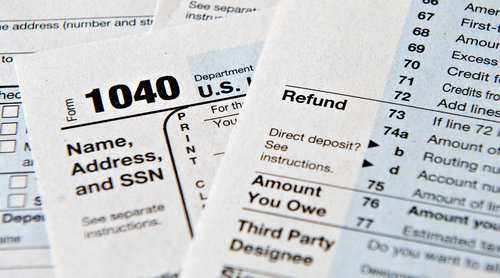If scammers end up reaching out to you this tax season, it will likely be through one of these two avenues – phone calls or emails. Although this is quite broad, it’s important to know the following about each potential attack.
Fake Phone Calls
First, scammers will mask their caller ID so it reflects an IRS number. Next, they will falsify their names and titles, in an attempt to create some sort of legitimacy to their fraudulent identity. Then, they will do one of two things. They will either claim you have an outstanding debt with the IRS, which must be paid over the phone, at that time. Or, they will claim to have a refund that wasn’t properly distributed, and they need personal information to process the remaining refund amount.
Phishing Emails
As if calling wasn’t enough, scammers have found sending malicious phishing emails to the masses is a much faster payday than individually calling people. These emails have one primary goal — to generate urgency for the reader to act. This action may be clicking on a link, calling a phone number, or downloading an attachment. The email will likely make similar claims as the phone scams, either the victim “owes” funds, or is getting “refund”. Regardless — it is fake.
Don’t Fall For This
It is important users understand, the IRS will never reach out to you via telephone or email. If you legitimately owe the IRS money, or are privy to an additional refund, they will reach out to you via the United States Postal Service, either through standard or certified mail.
Also, the IRS will never require you to make a payment through a certain payment method, like a prepaid credit card. Nor will they threaten to notify local authorities if you fail to pay.
If you receive a bogus phone call, please let them know you’re aware it is a scam. This should get them to remove the phone number from their
If you’d like confirmation regarding your tax refund or clarification regarding any past-due taxes, you may reach a legitimate IRS staffer at (800) 829-1040. Or, if you are certain you don’t owe taxes and don’t have any tax problems, report the phone call scam to the Treasury Inspector General for Tax Administration at (800) 366-4484.




